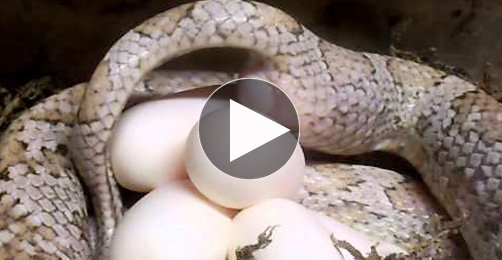When a corn snake lays an egg, it is a sign that something extraordinary is taking place. The wild corn snake is a non-venomous species of snake native to North America and is a popular pet for its docile nature and attractive markings. Corn snakes can lay anywhere from 4-12 eggs, depending on their age and health. For those who are not familiar with the process of laying eggs, it is important to understand some of the basics. When a female corn snake is ready to lay eggs, she will look for a dark, humid place in which to do so. This could be a burrow, a crevice in the soil, or even a specially prepared nest box. The eggs are usually laid in groups of two or three.
Once the eggs are laid, the female will typically curl her body around them to keep them warm. This is a crucial step in the process as the temperature of the eggs must remain consistent and within a specific range in order for them to successfully hatch. Once the eggs are laid, the female will typically abandon the nest, leaving the eggs to be incubated by the surrounding environment. This means that, if the eggs are laid in the wild, the temperature and humidity levels must be carefully monitored in order to ensure the eggs’ survival. Pet owners should also take extra precautions to ensure the eggs are kept in a safe and suitable environment.
The eggs can take up to 2 months to hatch, depending on the temperature and humidity of the surrounding environment. Once hatched, the baby corn snakes will usually be able to fend for themselves and will not require any additional care from their parents. The process of laying eggs can be a fascinating one to observe, and can be a great way to learn more about the natural behavior of corn snakes. It is also important to be aware of the specific needs of the eggs in order to ensure their survival.










